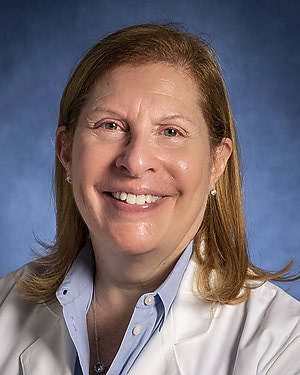Takeaway
Both of my knees need to be replaced—I already can’t wait to get back to playing pickleball. I now have renewed empathy in the OR and remind patients: “Recovery will take time. Try to be patient.”

Connecting with patients | September 6, 2023 | 3 min read
By Joanne Shay, MD, Johns Hopkins Medicine
In my personal life, and as an anesthesiologist, I’ve always been a doer. I routinely run to codes and trauma emergencies and have been lucky to have remarkably good health. Once my children were grown, I took more call, not less, knowing that I had fewer time commitments at home. I took pride in my stamina, as well as my work. I’m proud that I volunteered to do night airway call during the throes of the pandemic. I’ve always been a resource; I’ve always filled in for sick colleagues. It was a privilege. I took pride in attending the 2017 Women’s March in Washington, D.C., as well as marching on the Supreme Court in 2020 to protest the nomination of Justice Barrett. Both events involved miles and miles of walking. Another privilege. Aches and pains be gone! A few ibuprofen and I kept going.
In the past few weeks, I’ve had to deal with an acute change in my physical status. My knees have betrayed me. I can’t stand for long, much less run; I bobble when I get out of a chair, the pain drains my energy, and it wakes me from sleep. I’m in the information seeking process of my path to wellness. I sit in the exam chair, and wait for attention, wisdom, direction. I want information to help me make decisions that will hopefully get me back to learning to play pickleball with my husband and running in the OR to assist with a patient experiencing problems during anesthesia.
I’m no longer the expert where my care is concerned. I miss being the one with answers and knowing with certainty what to do. Do the surgeons taking care of me understand that I don’t want the moniker “retired anesthesiologist?” I’m not ready for that, and I still have work to accomplish. I have many holiday dinners to stand and prepare, and many more young residents to train to be the best physicians that they can be. Getting older is ok with me, I look forward to all the things that women of a certain age get to do, like traveling, book clubs, and grandchildren. What I’m not ready for is the loss of function that comes without warning and not sure where to find the care I need.
So, what do I take from this challenging experience to be more present for my patients? I now ask, “What do you hope your recovery will look like?” Help patients to think of the future and what role you can play in getting them there. So, for an anesthesiologist, “I know you’ve been having horrible pain, so I’ve spoken to the regional anesthesia block team and your surgeon, and we all agree that you would benefit from an XYZ block to help control post-op pain.” This is understanding, acknowledgement, and suggesting a plan.
Additionally, it’s common to ask patients what they thought could have been done better or about complications from their previous anesthetics, but asking about preferences is important too. I now ask, “What makes you happy?” I make sure they know that I care and that I’ll help them through this challenging time. For the surgeon, learn what the patient wants to do most when they’re feeling better. Help them to understand the process and the stages of recovery. Saying that 75% of patients recovering from this surgery have satisfactory results isn’t as helpful as, “ Most patients can walk with help after a few days, and you’ll start PT shortly after that to promote healing in balance with maintaining function post-op.” Goal setting with a realistic timetable.
Personally, I hope my surgical team is familiar with CLOSLER, and takes the time to be present, realistic, and thoughtful with me.
This piece expresses the views solely of the author. It does not necessarily represent the views of any organization, including Johns Hopkins Medicine.

